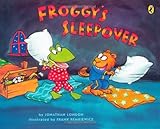NASA's Newest Astronaut Recruits Report For Training
Language
Reading Level
Listen to Article

Many kids dream of venturing into space to search for new planets or to conduct cutting-edge research on the International Space Station (ISS). In August 2017, twelve eager men and women came one step closer to realizing their lifelong ambition when they reported to the Johnson Space Center in Houston to begin two years of grueling training. If they succeed, they will be NASA’s biggest graduating class of astronauts since 2000.
The seven men and five women were selected from a record 18,300 applications received by the space agency, since it announced it was seeking more astronauts in December 2015. To be considered for the position, candidates had to have a bachelor’s degree in science, technology, engineering or a mathematics-related field. They were also required to be in good health and between 5’2 and 6’3 tall. Also essential were superior “leadership, teamwork, and communications skills.” According to NASA, the twelve trainees, selected after two rounds of interviews — one lasting three days and the second, an entire week — are a diverse group with various careers and backgrounds.

Jasmin Moghbeli, one of the twelve recruits, has been dreaming of becoming an astronaut since sixth grade after reading a book about cosmonaut Valentina Tereshkova, the first female in space. “I'd always been interested in science, math, and technology, that sort of thing always drew me in. I thought space exploration was the coolest thing.”
The modest 33-year-old is stunned that she was selected and says, "There were many other applicants that applied who were extremely qualified for this position that aren't lucky enough to be sitting up here like I am.” However, it would be hard to find someone as suitable for the job than the New York native, who boasts a bachelor’s and master’s degree in Aerospace Engineering. She has 1,600 hours of flight training, completed 150 combat missions, and at the time of her selection, was testing H-1 helicopters for the U.S. Marine Corps. Moghbeli’s advice for aspiring astronauts? "Start looking into science, technology, engineering, math, those kinds of fields. But whatever you do, love it.”

Fellow trainee Kayla Barron, a lieutenant in the U.S. Navy at the time of her application, heard about the chance to become an astronaut through one of her mentors. The nuclear science graduate from Cambridge University thought her unconventional background as a member of the military would put her out of contention for the astronaut job. And she almost did not make it, but only because she missed NASA’s call and the space agency does not leave voicemails. “It was a horrifying experience. It was the most important call of my life.” Fortunately, they called back, and she instantly accepted the offer. Her advice to space dreamers? “Learn how to fail and move on from failure. You have to risk failure in order to be successful.”
Both women, along with the ten other trainees, are currently acquiring new skills that include endurance tasks like swimming laps and treading water for up to 10 minutes at a time, while wearing a flight suit and tennis shoes. They are also required to ride up and down jet aircrafts at least 40 times a day to mimic the zero gravity conditions in space, get their scuba certification, and become accustomed to wearing the hot and uncomfortable astronaut suits.

According to NASA’s website, upon graduating, the new astronauts will be assigned to various tasks. These range from research on the International Space Station to conducting deep space missions on NASA’s new Orion spacecraft. Moghbeli says, “A lot of new, exciting things are coming up that we could potentially be doing in the near future. If they could assign me any mission, I'd be overjoyed.” The future astronaut adds, “Hopefully we can continue to go off and explore where we've never been before.”
Resources: NPR.org, NASA.gov, money.CNN.com.
Cite Article
Learn Keywords in this Article
304 Comments
- bobalmost 6 yearscool i dont want to go to space
- xxxlonealmost 6 yearscool omg!!!!!!!!!!!!
- Rosaalmost 6 yearsWow nice
- legomanalmost 6 yearsawesome!!!!!!
- allen4371over 5 yearslegoman you are cool
- Saraabout 6 yearsI want to fly!
- CHEERabout 6 yearsNASA!!!!!!!!!!!!!!!!!!!!!!!!!! NASA !!!!!!!!!!!!!!!!!!!!!!!!NASA!!!!!!!!!!!!!!!!!!! NASA!!!!!!!!!!!!!!!!!!!!!!!!!!!!!!!!
- ningaabout 6 yearsit is cool
- mangleplayzabout 6 yearswhy only two people
- Maddieabout 6 yearsI LOVE N.A.S.A
- Payabout 6 yearsI'd like to go to N.A.S.A.




